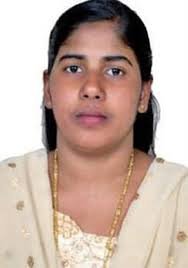Indian national Nimisha Priya, convicted of murder in Yemen, has received a temporary reprieve from execution. However, hopes for her release suffered a setback after Abdelfattah Mehdi, brother of the deceased Talal Mehdi, refused to grant a pardon, calling the act a “serious crime” that warrants execution.
The Nimisha Priya case continues to raise critical questions about international diplomacy, humanitarian justice, and the role of Islamic (Sharia) law in criminal sentencing.
🔍 Background: Who Is Nimisha Priya?
Nimisha Priya, a nurse from Kerala, was working in Yemen when she was accused in 2017 of killing her business partner, Yemeni national Talal Mehdi. According to reports, she administered an injection that led to his death — allegedly in an attempt to escape a situation where she faced exploitation and abuse.
Yemeni courts sentenced her to death under Sharia law, which governs criminal justice in the country.
⚖️ Sharia Law and the Right to Forgiveness
Under Yemen’s interpretation of Islamic law, the power to forgive a murderer lies solely with the victim’s family — a process called Qisas (retribution) and Diyya (blood money). If the family accepts monetary compensation, the death penalty can be waived.
In this case, however, Abdelfattah Mehdi — speaking on behalf of the deceased’s family — has made it clear: “This is a grave crime. She deserves capital punishment.”
💰 Hope Through Blood Money: The Role of M.A. Yusuff Ali
Despite the family’s refusal, there is a glimmer of hope. Indian-origin billionaire businessman M.A. Yusuff Ali, based in the UAE, has stepped in, expressing willingness to fund the blood money negotiations in an attempt to save Nimisha’s life.
Sources indicate that discussions with the victim’s family are still ongoing, facilitated by legal teams, NGOs, and diplomatic channels.
🇮🇳 India’s Government Steps In
The Indian government has shown serious interest in the case. The Ministry of External Affairs is working through diplomatic backchannels, and the Indian Embassy in Yemen has been involved in negotiations.
Meanwhile, public support is rising in India, particularly in Kerala. Nimisha’s mother has made emotional appeals, urging the government to do everything possible to bring her daughter home alive.
🚨 What’s Next?
While Nimisha Priya execution has been temporarily delayed, it remains unclear whether a lasting resolution can be reached. If the Mehdi family maintains their stance, the death penalty could still be implemented.
This case not only tests the limits of international legal diplomacy but also raises ethical and humanitarian questions: Can compassion override law? Should cultural and religious codes be flexible in such deeply emotional cases?




